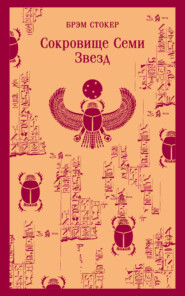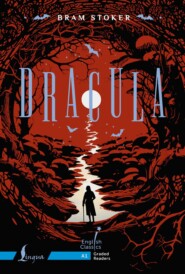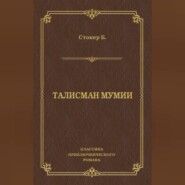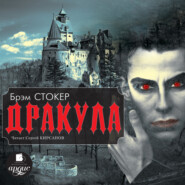По всем вопросам обращайтесь на: info@litportal.ru
(©) 2003-2024.
✖
The Mystery of the Sea / Тайна моря
Настройки чтения
Размер шрифта
Высота строк
Поля
“All right, oh wise man! I obey, King Solomon! I shall wait to put on my own clothes till I get back; and you can lend me a mackie-coat if you will.” I got one of mine for her, the newest; and we walked over the sandhills to the beach.
The wind was blowing furiously. It never left off for a moment; but occasionally there were bursts of such added violence that we found it difficult to keep our feet. We clung to each other at such moments, and the very sense of the strength which enabled me to shield her somewhat from the violence of the storm, made a new feeling of love-I could not now disguise it from myself. Something went out from me to her; some subtle feeling which must, I suppose, have manifested itself in some way, how I know not, for I kept guard upon myself. For one blissful moment, possibly of forgetfulness, she clung to me as the weak cling to the strong, the clinging of selfsurrender which is equally dear to the weak and the strong, to the woman and the man. And then she drew herself sharply away from me.
There was no misunderstanding the movement; it was an intentional and conscious one, and the motive which lay behind both was her woman's mystery. I did not know much about women, but I could make no mistake as to this. Inasmuch as Providence has thought fit in its wisdom to make men and women different, it is just as well that each sex should at critical times use its own potentialities for its protection and advancement. Herein comes, in the midst of an unnatural civilisation, the true utility of instinct. Since we have lost the need of early information of the presence of game or of predatory animals or hostile men, even our instincts adapt themselves to our surroundings. Many an act which may afterwards seem the result of long and careful premeditation is, on reflection, found to be simply the result of that form of momentary impulse which is in reality a blind obedience to some knowledge of our ancestors gained through painful experience. Some protective or militant instinct whose present exercise is but a variant of its primal use. For an instant the man and the woman were antagonistic. The woman shrank, therefore it was the man's interest to advance; all at once the man in me spoke through the bashfulness and reticence of years:
“Why do you shrink from me? Have I done anything?”
“Oh no!”
“Then why?” A hot blush mantled her face and neck. Had she been an English girl I should not probably have had a direct answer; she would have switched conversation on some safer track, or have, after some skirmishing, forbidden the topic altogether. This girl's training, however, had been different. Her equal companionship in study with boys in school and college had taught her the futility of trying to burke a question when her antagonist was masculine; and the natural pluck and dominance-the assertion of individuality which is a part of an American woman's birthright-brought up her pride. Still blushing, but bearing herself with additional dignity, she spoke. Had she been more self-conscious, and could she have seen herself at the moment, she would have recognised to the full that with so much pride and so much dignity she could well afford to discuss any topic that she chose.
“The fault is not yours. It is, or it was, my own.”
“You mean when I gave you back your brooch?” The blood deepened and deepened to a painful intensity. In a low voice, in the tone of speech, but with only the power of a whisper she answered me:
“Yes!” This was my chance and I said with all the earnestness I had, and which I felt to the full:
“Let me say something. I shall not ever allude to it again unless you wish. I took that sweet acknowledgment of your gratitude exactly as it was meant. Do believe that I am a gentleman. I have not got a sister, I am sorry to say, but if I had, I should not mind her giving a kiss to a stranger under such circumstances. It was a sweet and womanly act and I respect-and-like you more for it. I wouldn't, of course, for all the world you hadn't done it; and I shall never forget it. But believe me I shall never forget myself on account of it. If I did I should be a howling cad;-and-that's all.”
As I spoke her face brightened and she sighed with an expression of relief. The blush almost faded away, and a bright smile broke over her face. With a serious deep look in the eyes which glistened through her smile she held out her hand and said:
“You are a good fellow, and I thank you with all my heart.”
I felt as if I walked on air as we forced our way through the storm which roared around us, over the sandhills towards the sea. It was with an exultation that made my head swim that I noticed that she kept step with me.
Chapter IX. Confidences And Secret Writing
The shore was a miracle of wild water and white foam. When the wind blows into Cruden Bay there is no end or limit to the violence of waves, which seem to gather strength as they rush over the flat expanse of shore. The tide was now only half in, and ordinarily there would have been a great stretch of bare sand between the dunes and the sea. To-night, however, the piling up of the waters sent in an unnatural tide which swept across the flat shore with exceeding violence. The roaring was interminable, and as we stood down on the beach we were enveloped in sheets of flying foam. The fierce blasts came at moments with such strength that it was physically impossible for us to face them. After a little we took shelter behind one of the wooden bathing-boxes fastened down under the sandhills. Here, protected from the direct violence of the storm, the shelter seemed like a calm from which we heard the roaring of wind and wave as from far off. There was a sense of cosiness in the shelter which made us instinctively draw close together. I could have remained happy in such proximity forever, but I feared that it would end at any moment. It was therefore, with delight that I heard the voice of Miss Anita, raised to suit the requirements of the occasion:
“Now that we are alone, won't you tell me about Gormala and the strange occurrences?” I tried to speak, but the storm was too great for the purposes of narrative. So I suggested that we should come behind the sandhill. We went accordingly, and made a nest in a deep hollow behind the outer range of hillocks. Here crouched among the tall bent, which flew like whip lashes when the wilder bursts of the storm came, and amid a neverending scourge of fine sand swept from the top of the sandhills, I told her of all my experiences of Gormala and Second Sight.
She listened with a rapt attention. At times I could not see her face, for the evening was closing in and the driving clouds overhead, which kept piling up in great masses along the western horizon, shut out the remnants of the day. When, however, in the pauses of drifting sand and flying foam I could see her properly, I found her face positively alight with eager intelligence. Throughout, she was moved at times, and now and again crept a little closer to me; as for instance when I told her of the dead child and of Lauchlane Macleod's terrible struggle for life in the race of the tide amongst the Skares. Her questions were quite illuminating to me at moments, for her quick woman's intuition grasped possibilities at which my mere logical faculties had shied. Beyond all else, she was interested in the procession of ghosts on Lammas Eve. Only once during my narrative of this episode she interrupted me; not an intentional interruption but a passing comment of her own, candidly expressed. This was where the body of armed men came along; at which she said with a deep hissing intake of her breath through her teeth:
“Spaniards! I knew it! They were from some lost ship of the Armada!” When I spoke of the one who turned and looked at me with eyes that seemed of the quick, she straightened her back and squared her shoulders, and looking all round her alertly as though for some hidden enemy, clenched her hands and shut her lips tightly. Her great dark eyes seemed to blaze; then she grew calm again in a moment.
When I had finished she sat silent for a while, her eyes fixed in front of her as with one whose mind is occupied with introspection. Suddenly she said:
“That man had some secret, and he feared you would discover it. I can see it all! He, coming from his grave, could see with his dead eyes what you could see with your living ones. Nay, more; he could, perhaps, see not only that you saw, and what you saw, but where the knowledge would lead you. That certainly is a grand idea of Gormala's, that of winning the Secret of the Sea!” After a pause of a few moments she went on, standing up as she did so and walking restlessly to and fro with clenched hands and flashing eyes:
“And if there be any Secrets of the Sea why not win them? If they be of Spain and the Spaniard, why not, a thousand times more, win them. If the Spaniard had a secret, be sure it was of no good to our Race. Why-” she moved excitedly as she went on: “Why this is growing interesting beyond belief. If his dead eyes could for an instant become quick, why should not the change last longer? He might materialise altogether.” She stopped suddenly and said: “There! I am getting flighty as usual. I must think it all over. It is all too wonderful and too exciting for anything. You will let me ask you more about it, won't you, when we meet again?”
When we meet again! Then we would meet again: The thought was a delight to me; and it was only after several rapturous seconds that I answered her:
“I shall tell you all I know; everything. You will be able to help me in discovering the Mystery; perhaps working together we can win the Secret of the Sea.”
“That would be too enchanting!” she said impulsively, and then stopped suddenly as if remembering herself. After a pause she said sedately:
“I'm afraid we must be going back now. We have a long way to drive; and it will be quite late enough anyhow.”
As we moved off I asked her if I might not see her and Mrs. Jack safely home. I could get a horse at the hotel and drive with them. She laughed lightly as she answered:
“You are very kind indeed. But surely we shall not need any one! I am a good driver; the horse is perfect and the lamps are bright. You haven't any 'hold-ups' here as we have Out West; and as I am not within Gormala's sphere of influence, I don't think there is anything to dread!” Then after a pause she added:
“By the way have you ever seen Gormala since?” It was with a queer feeling which I could not then analyse, but which I found afterwards contained a certain proportion of exultation I answered:
“Oh yes! I saw her only two days ago-” Here I stopped for I was struck with a new sense of the connection of things. Miss Anita saw the wonder in my face and drawing close to me said:
“Tell me all about it!” So I told her of the auction at Peterhead and of the chest and the papers with the mysterious marks, and of how I thought it might be some sort of account-“or,” I added as a new idea struck me-“secret writing.” When I had got thus far she said with decision:
“I am quite sure it is. You must try to find it out. Oh, you must, you must!”
“I shall,” said I, “if you desire it.” She said nothing, but a blush spread over her face. Then she resumed her movement towards the hotel.
We walked in silence; or rather we ran and stumbled, for the fierce wind behind us drove us along. The ups and downs of the surface were veiled with the mist of flying sand swept from amongst the bent-grass on the tops of the sandhills. I would have liked to help her, but a judicious dread of seeming officious-and so losing a step in her good graces-held me back. I felt that I was paying a price of abstinence for that kiss. As we went, the silence between us seemed to be ridiculous; so to get over it I said, after searching in my mind for a topic which would not close up her sympathies with me:
“You don't seem to like Spaniards?”
“No,” she answered quickly, “I hate them! Nasty, cruel, treacherous wretches! Look at the way they are treating Cuba! Look at the Maine!” Then she added suddenly:
“But how on earth did you know I dislike them.” I answered:
“Your voice told me when you spoke to yourself whilst I was telling you about the ghosts and the man with the eyes.”
“True,” she said reflectively. “So I did. I must keep more guard on myself and not let my feelings run away with me. I give myself away so awfully.” I could have made a reply to this, but I was afraid. That kiss seemed like an embodied spirit of warning, holding a sword over my head by a hair.
It was not long before I found the value of my silence. The lady's confidence in my discretion was restored, and she began, of her own initiative, to talk. She spoke of the procession of ghosts; suddenly stopping, however, as if she had remembered something, she said to me:
“But why were you so anxious that Gormala should not have seen you saving us from the rock?”
“Because,” I answered, “I did not want her to have anything to do with this.”
“What do you mean by 'this'?” There was something in the tone of her query which set me on guard. It was not sincere; it had not that natural intonation, even, all through, which marks a question put in simple faith. Rather was it in the tone of one who asks, knowing well the answer which will or may be given. As I have said, I did not know much about women, but the tone of coquetry, no matter how sweet, no matter how ingenuous, no matter how lovable, cannot be mistaken by any man with red blood in his veins! Secretly I exulted, for I felt instinctively that there rested some advantage with me in the struggle of sex. The knowledge gave me coolness, and brought my brain to the aid of my heart. Nothing would have delighted me more at the moment than to fling myself, actually as well as metaphorically, at the girl's feet. My mind was made up to try to win her; my only thought now was the best means to that end. I felt that I was a little sententious as I replied to her question:
“By 'this' I mean the whole episode of my meeting with you.”
“And Mrs. Jack,” she added, interrupting me.
“And Mrs. Jack, of course,” I went on, feeling rejoiced that she had given me an opportunity of saying something which I would not otherwise have dared to say. “Or rather I should perhaps say, my meeting with Mrs. Jack and her friend. It was to me a most delightful thing to meet with Mrs. Jack; and I can honestly say this day has been the happiest of my life.”
“Don't you think we had better be getting on? Mrs. Jack will be waiting for us!” she said, but without any kind of reproach in her manner.
“All right,” I answered, as I ran up a steep sandhill and held out my hand to help her. I did not let her hand go till we had run down the other side, and up and down another hillock and came out upon the flat waste of sand which lay between us and the road, and over which a sort of ghostly cloud of sand drifted.
Before we left the sand, I said earnestly:
“Gormala's presence seems always to mean gloom and sorrow, weeping and mourning, fear and death. I would not have any of them come near you or yours. This is why I thanked God then, and thank Him now, that in our meeting Gormala had no part!”
She gave me her hand impulsively. As for an instant her soft palm lay in my palm and her strong fingers clasped mine, I felt that there was a bond between us which might some day enable me to shield her from harm.
The wind was blowing furiously. It never left off for a moment; but occasionally there were bursts of such added violence that we found it difficult to keep our feet. We clung to each other at such moments, and the very sense of the strength which enabled me to shield her somewhat from the violence of the storm, made a new feeling of love-I could not now disguise it from myself. Something went out from me to her; some subtle feeling which must, I suppose, have manifested itself in some way, how I know not, for I kept guard upon myself. For one blissful moment, possibly of forgetfulness, she clung to me as the weak cling to the strong, the clinging of selfsurrender which is equally dear to the weak and the strong, to the woman and the man. And then she drew herself sharply away from me.
There was no misunderstanding the movement; it was an intentional and conscious one, and the motive which lay behind both was her woman's mystery. I did not know much about women, but I could make no mistake as to this. Inasmuch as Providence has thought fit in its wisdom to make men and women different, it is just as well that each sex should at critical times use its own potentialities for its protection and advancement. Herein comes, in the midst of an unnatural civilisation, the true utility of instinct. Since we have lost the need of early information of the presence of game or of predatory animals or hostile men, even our instincts adapt themselves to our surroundings. Many an act which may afterwards seem the result of long and careful premeditation is, on reflection, found to be simply the result of that form of momentary impulse which is in reality a blind obedience to some knowledge of our ancestors gained through painful experience. Some protective or militant instinct whose present exercise is but a variant of its primal use. For an instant the man and the woman were antagonistic. The woman shrank, therefore it was the man's interest to advance; all at once the man in me spoke through the bashfulness and reticence of years:
“Why do you shrink from me? Have I done anything?”
“Oh no!”
“Then why?” A hot blush mantled her face and neck. Had she been an English girl I should not probably have had a direct answer; she would have switched conversation on some safer track, or have, after some skirmishing, forbidden the topic altogether. This girl's training, however, had been different. Her equal companionship in study with boys in school and college had taught her the futility of trying to burke a question when her antagonist was masculine; and the natural pluck and dominance-the assertion of individuality which is a part of an American woman's birthright-brought up her pride. Still blushing, but bearing herself with additional dignity, she spoke. Had she been more self-conscious, and could she have seen herself at the moment, she would have recognised to the full that with so much pride and so much dignity she could well afford to discuss any topic that she chose.
“The fault is not yours. It is, or it was, my own.”
“You mean when I gave you back your brooch?” The blood deepened and deepened to a painful intensity. In a low voice, in the tone of speech, but with only the power of a whisper she answered me:
“Yes!” This was my chance and I said with all the earnestness I had, and which I felt to the full:
“Let me say something. I shall not ever allude to it again unless you wish. I took that sweet acknowledgment of your gratitude exactly as it was meant. Do believe that I am a gentleman. I have not got a sister, I am sorry to say, but if I had, I should not mind her giving a kiss to a stranger under such circumstances. It was a sweet and womanly act and I respect-and-like you more for it. I wouldn't, of course, for all the world you hadn't done it; and I shall never forget it. But believe me I shall never forget myself on account of it. If I did I should be a howling cad;-and-that's all.”
As I spoke her face brightened and she sighed with an expression of relief. The blush almost faded away, and a bright smile broke over her face. With a serious deep look in the eyes which glistened through her smile she held out her hand and said:
“You are a good fellow, and I thank you with all my heart.”
I felt as if I walked on air as we forced our way through the storm which roared around us, over the sandhills towards the sea. It was with an exultation that made my head swim that I noticed that she kept step with me.
Chapter IX. Confidences And Secret Writing
The shore was a miracle of wild water and white foam. When the wind blows into Cruden Bay there is no end or limit to the violence of waves, which seem to gather strength as they rush over the flat expanse of shore. The tide was now only half in, and ordinarily there would have been a great stretch of bare sand between the dunes and the sea. To-night, however, the piling up of the waters sent in an unnatural tide which swept across the flat shore with exceeding violence. The roaring was interminable, and as we stood down on the beach we were enveloped in sheets of flying foam. The fierce blasts came at moments with such strength that it was physically impossible for us to face them. After a little we took shelter behind one of the wooden bathing-boxes fastened down under the sandhills. Here, protected from the direct violence of the storm, the shelter seemed like a calm from which we heard the roaring of wind and wave as from far off. There was a sense of cosiness in the shelter which made us instinctively draw close together. I could have remained happy in such proximity forever, but I feared that it would end at any moment. It was therefore, with delight that I heard the voice of Miss Anita, raised to suit the requirements of the occasion:
“Now that we are alone, won't you tell me about Gormala and the strange occurrences?” I tried to speak, but the storm was too great for the purposes of narrative. So I suggested that we should come behind the sandhill. We went accordingly, and made a nest in a deep hollow behind the outer range of hillocks. Here crouched among the tall bent, which flew like whip lashes when the wilder bursts of the storm came, and amid a neverending scourge of fine sand swept from the top of the sandhills, I told her of all my experiences of Gormala and Second Sight.
She listened with a rapt attention. At times I could not see her face, for the evening was closing in and the driving clouds overhead, which kept piling up in great masses along the western horizon, shut out the remnants of the day. When, however, in the pauses of drifting sand and flying foam I could see her properly, I found her face positively alight with eager intelligence. Throughout, she was moved at times, and now and again crept a little closer to me; as for instance when I told her of the dead child and of Lauchlane Macleod's terrible struggle for life in the race of the tide amongst the Skares. Her questions were quite illuminating to me at moments, for her quick woman's intuition grasped possibilities at which my mere logical faculties had shied. Beyond all else, she was interested in the procession of ghosts on Lammas Eve. Only once during my narrative of this episode she interrupted me; not an intentional interruption but a passing comment of her own, candidly expressed. This was where the body of armed men came along; at which she said with a deep hissing intake of her breath through her teeth:
“Spaniards! I knew it! They were from some lost ship of the Armada!” When I spoke of the one who turned and looked at me with eyes that seemed of the quick, she straightened her back and squared her shoulders, and looking all round her alertly as though for some hidden enemy, clenched her hands and shut her lips tightly. Her great dark eyes seemed to blaze; then she grew calm again in a moment.
When I had finished she sat silent for a while, her eyes fixed in front of her as with one whose mind is occupied with introspection. Suddenly she said:
“That man had some secret, and he feared you would discover it. I can see it all! He, coming from his grave, could see with his dead eyes what you could see with your living ones. Nay, more; he could, perhaps, see not only that you saw, and what you saw, but where the knowledge would lead you. That certainly is a grand idea of Gormala's, that of winning the Secret of the Sea!” After a pause of a few moments she went on, standing up as she did so and walking restlessly to and fro with clenched hands and flashing eyes:
“And if there be any Secrets of the Sea why not win them? If they be of Spain and the Spaniard, why not, a thousand times more, win them. If the Spaniard had a secret, be sure it was of no good to our Race. Why-” she moved excitedly as she went on: “Why this is growing interesting beyond belief. If his dead eyes could for an instant become quick, why should not the change last longer? He might materialise altogether.” She stopped suddenly and said: “There! I am getting flighty as usual. I must think it all over. It is all too wonderful and too exciting for anything. You will let me ask you more about it, won't you, when we meet again?”
When we meet again! Then we would meet again: The thought was a delight to me; and it was only after several rapturous seconds that I answered her:
“I shall tell you all I know; everything. You will be able to help me in discovering the Mystery; perhaps working together we can win the Secret of the Sea.”
“That would be too enchanting!” she said impulsively, and then stopped suddenly as if remembering herself. After a pause she said sedately:
“I'm afraid we must be going back now. We have a long way to drive; and it will be quite late enough anyhow.”
As we moved off I asked her if I might not see her and Mrs. Jack safely home. I could get a horse at the hotel and drive with them. She laughed lightly as she answered:
“You are very kind indeed. But surely we shall not need any one! I am a good driver; the horse is perfect and the lamps are bright. You haven't any 'hold-ups' here as we have Out West; and as I am not within Gormala's sphere of influence, I don't think there is anything to dread!” Then after a pause she added:
“By the way have you ever seen Gormala since?” It was with a queer feeling which I could not then analyse, but which I found afterwards contained a certain proportion of exultation I answered:
“Oh yes! I saw her only two days ago-” Here I stopped for I was struck with a new sense of the connection of things. Miss Anita saw the wonder in my face and drawing close to me said:
“Tell me all about it!” So I told her of the auction at Peterhead and of the chest and the papers with the mysterious marks, and of how I thought it might be some sort of account-“or,” I added as a new idea struck me-“secret writing.” When I had got thus far she said with decision:
“I am quite sure it is. You must try to find it out. Oh, you must, you must!”
“I shall,” said I, “if you desire it.” She said nothing, but a blush spread over her face. Then she resumed her movement towards the hotel.
We walked in silence; or rather we ran and stumbled, for the fierce wind behind us drove us along. The ups and downs of the surface were veiled with the mist of flying sand swept from amongst the bent-grass on the tops of the sandhills. I would have liked to help her, but a judicious dread of seeming officious-and so losing a step in her good graces-held me back. I felt that I was paying a price of abstinence for that kiss. As we went, the silence between us seemed to be ridiculous; so to get over it I said, after searching in my mind for a topic which would not close up her sympathies with me:
“You don't seem to like Spaniards?”
“No,” she answered quickly, “I hate them! Nasty, cruel, treacherous wretches! Look at the way they are treating Cuba! Look at the Maine!” Then she added suddenly:
“But how on earth did you know I dislike them.” I answered:
“Your voice told me when you spoke to yourself whilst I was telling you about the ghosts and the man with the eyes.”
“True,” she said reflectively. “So I did. I must keep more guard on myself and not let my feelings run away with me. I give myself away so awfully.” I could have made a reply to this, but I was afraid. That kiss seemed like an embodied spirit of warning, holding a sword over my head by a hair.
It was not long before I found the value of my silence. The lady's confidence in my discretion was restored, and she began, of her own initiative, to talk. She spoke of the procession of ghosts; suddenly stopping, however, as if she had remembered something, she said to me:
“But why were you so anxious that Gormala should not have seen you saving us from the rock?”
“Because,” I answered, “I did not want her to have anything to do with this.”
“What do you mean by 'this'?” There was something in the tone of her query which set me on guard. It was not sincere; it had not that natural intonation, even, all through, which marks a question put in simple faith. Rather was it in the tone of one who asks, knowing well the answer which will or may be given. As I have said, I did not know much about women, but the tone of coquetry, no matter how sweet, no matter how ingenuous, no matter how lovable, cannot be mistaken by any man with red blood in his veins! Secretly I exulted, for I felt instinctively that there rested some advantage with me in the struggle of sex. The knowledge gave me coolness, and brought my brain to the aid of my heart. Nothing would have delighted me more at the moment than to fling myself, actually as well as metaphorically, at the girl's feet. My mind was made up to try to win her; my only thought now was the best means to that end. I felt that I was a little sententious as I replied to her question:
“By 'this' I mean the whole episode of my meeting with you.”
“And Mrs. Jack,” she added, interrupting me.
“And Mrs. Jack, of course,” I went on, feeling rejoiced that she had given me an opportunity of saying something which I would not otherwise have dared to say. “Or rather I should perhaps say, my meeting with Mrs. Jack and her friend. It was to me a most delightful thing to meet with Mrs. Jack; and I can honestly say this day has been the happiest of my life.”
“Don't you think we had better be getting on? Mrs. Jack will be waiting for us!” she said, but without any kind of reproach in her manner.
“All right,” I answered, as I ran up a steep sandhill and held out my hand to help her. I did not let her hand go till we had run down the other side, and up and down another hillock and came out upon the flat waste of sand which lay between us and the road, and over which a sort of ghostly cloud of sand drifted.
Before we left the sand, I said earnestly:
“Gormala's presence seems always to mean gloom and sorrow, weeping and mourning, fear and death. I would not have any of them come near you or yours. This is why I thanked God then, and thank Him now, that in our meeting Gormala had no part!”
She gave me her hand impulsively. As for an instant her soft palm lay in my palm and her strong fingers clasped mine, I felt that there was a bond between us which might some day enable me to shield her from harm.

















